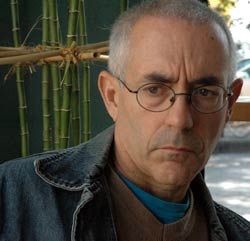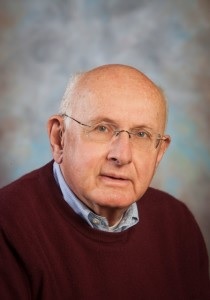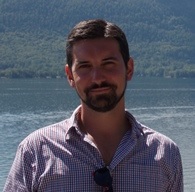At 4:30 PM on Friday, September 22, in the Wood Hall Basement Lounge, Daniel Immerwahr of Northwestern University will be inaugurating this year’s US Foreign Policy Seminar with a lecture entitled “No One Knows in America, Puerto Rico’s in America.”
First-year doctoral student Megan Streit here offers a brief and compelling introduction to the work of this innovative scholar.
Daniel Immerwahr is an historian who focuses on twentieth-century US through a global lens. Additional research interests include the history of capitalism and intellectual history. Though born near Philadelphia, Immerwahr’s research and scholarship have taken him abroad to India and the Philippines and he has lectured and taught at elite universities such as Berkeley and Columbia as well as at San Quentin State Prison. The son of a philosophy professor and theater director, Immerwahr began his academic career at Columbia University hoping New York City would kickstart a career as a jazz musician. Though originally immersed in the Columbia Architectural School, his coursework there introduced Immerwahr to Hawaii’s complicated history with the US government and this inspired him to explore US power and nation building. Immerwahr’s architecture professor, Gwendolyn Wright, advised him to go down to NYU and speak with her husband about the topic and soon enough Immerwahr found himself in conversation with Thomas Bender, a leading scholar on the historiography of the United States. Bender’s anthology, Rethinking American History in a Global Age, indicates the overlap in interest that the two shared. With these interactions we see how Immerwahr’s undergrad experience and academic influences evolve toward a focus on the US as a global force. Immerwahr earned a second B.A. as a Marshall Scholar at Cambridge and then a PhD at Berkeley. After a postdoctoral post at Columbia in 2011, he has taught at Northwestern as an assistant professor since 2012.
The organic evolution of Immerwahr’s research interests, from architecture to intellectual history and capitalism, serves as a testament to the journey of a historian. Embarking on his first book, Thinking Small, Immerwahr combines these interests to posit a resounding critique of community development as a political tool. Critical of US pursuit of grassroots development at home and abroad, Immerwahr’s focus ranges from the micro to macro and flawlessly weaves the two realms into a cohesive narrative on US empire and power. Thinking Small takes its reader on an exploratory examination of development as a tool both in the foreign and domestic arenas. Development is no simple topic nor endeavor. Affected by every political and sociological factor imaginable, development is an ongoing issue with no clear, blanket solution in sight. From climate, to demographics, to political structures, there are too many variables by country and region to impose a magical solution to poverty and wealth disparity. Historically, the American approach to catalyzing development at home and abroad has largely been the top-down structure, a “trickle-down” development theory if you will. While this approach has been well-intentioned, there have been several examples of unforeseen consequences that have actually hindered the communities they aimed to help. Large dams displace people, foreign donations can disrupt local economies, and new problems replace the previous ones. Immerwahr’s transnational approach shifts the focus from the elected elite to the everyday villager who understands the problem in a day to day lens.
Furthermore, there are additional issues seen in top-down development, one of formidable importance is that of corruption. With corruption we begin to see the political impact that social programs can elicit, a point which Immerwahr discusses at length in attacking the efficacy of government initiated development programs. Unfortunately, lesser developed countries often tend to also have less legitimate governments and less adherence to strict rule of law. Whether cause or effect, the lackluster economy incentives corruption and corruption dissuades investment in economy and the cycle spirals. This being said, foreign aid will not reach those it is intended to reach but instead, when the presence of poverty elicits continued donations from rich countries, the corrupt government is further incentivized to keep the people poor. Microloans and similar grassroots economic programs are prime examples of the bottom-up development that Immerwahr discusses for empowering the people to create the development of their local communities.
Scholarship
Thinking Small: The United States and the Lure of Community Development (2015) is Immerwahr’s primary piece of scholarship though his second major work, How to Hide an Empire: Geography and Power in the Greater United States, focusing on overseas territories of the US is forthcoming. Thinking Small is a masterful work that brings Immerwahr’s 2011 dissertation “Quests for Community: The United States, Community Development, and the World, 1935-1965” to a wider audience. The clear thread of evolution from dissertation to the expanded version of a book publication is that of community development. A buzzword over the last decade, the history of community involvement goes back much further in American history than this recent uptick in popularity suggests. As Immerwahr defines community development, “It’s a way of dealing with poverty by drawing on the participation of poor people. The idea is that the poor could improve their own conditions if only they could be brought together.”[1] The concept of grassroots societal improvement resonates strongly with foundational American values of mobility though occasionally at odds with America’s avid individualism.
While most narratives of communal development focus on their reach and impact within American society, Immerwahr’s Thinking Small adds the previously absent dimension of the international expression of this idea. Particularly as the Cold War began to ramp up, America took community building and refashioned it as a tool for containment via food aid in the 1950’s and 60’s. Immerwahr centers his work around India and the Philippines as his case studies. Immerwahr found there to be a lack in scholarship particularly around the relationship between the Philippines and the US and, apart from the attention it receives in Thinking Small, he did additional research and produced a piece titled, “Everything You Wanted to Know About the Philippines But Were Afraid to Ask.” The Philippines is featured further in his How to Hide an Empire work in which Immerwahr challenges the discourse on the murky status and history of the Philippines. Immerwahr describes this shift in thinking saying, ““What if, instead of writing about the Philippines as part of the history of foreign relations, we instead considered it part of national history? And what if, when we talked about the United States, we didn’t just talk about the contiguous part, but all of the land under US jurisdiction?”Here we see what an interesting new take on US empire we can look forward to in Immerwahr’s second book. Given the well reception Thinking Small has received, How to Hide an Empire should surely be a riveting examination of the sprawl of US imperialism and the nuanced politics that shade this discourse on empire building.
Immerwahr’s message in Thinking Small is not that community development is futile or inherently misappropriated but that these current challenges that America faces now that community development has turned stateside again are not new. Immerwahr stresses that community development is not the pleasant hand-holding slogan but rather, hard choices on far-reaching issues. Real change and improvement, the primary goals of community development, are not going to come without facing the critical issues of its motives and implementation that Immerwahr underscores. A concise book, Thinking Small creates constructive push back to the prevailing scholarship that is often enamored with community development. Immerwahr emphatically exposes the political band-aid that both the Left and Right have used community development as and criticizes the illusion of empowerment that this constructs. HIs approach and scholarship runs counter to the bulk of existing scholarship on this transnational topic and thus provides a fresh interpretation in the discourse of grassroots development.
In a show of true concern for his topic matter, Immerwahr has designated that all proceeds from the sale of Thinking Small go toward the NGO 350.org that aims to raise awareness of climate change, an issue in which human development efforts have played no small role and which grassroots development is directly impacted by. Finally, to ensure fascinating and lively dinner conversations, please treat yourself to Daniel’s thorough research on guano by watching his lecture on YouTube here: https://youtu.be/TnI4l6rFuHI
Bibliography
https://muse.jhu.edu/article/587535
http://faculty.wcas.northwestern.edu/daniel-immerwahr/dissertation.html
[1] https://www.dissentmagazine.org/blog/booked-1-whats-wrong-with-community-development


